The Department of Health and Human Services (HHS) extended the deadline to Friday, Aug. 28 from Monday, Aug. 3 for healthcare providers who participate in Medicaid and CHIP to apply to the Provider Relief Fund established in the Coronavirus Aid, Relief, and Economic Security (CARES) Act.
HHS had previously extended this deadline to Aug. 3 from July 20. HHS said that it plans to issue a simplified application form soon.
In addition, HHS is re-opening the portal for Medicare-participating providers to apply for funding set aside from the Provider Relief Fund for Medicare providers. The previous deadline to apply for this distribution was June 3.
Providers will now have until Aug. 28 to apply for the balance of funding up to 2% of their annual patient revenue. HHS is re-opening this application process after learning that many providers, including many Medicaid and CHIP providers, did not apply to the prior Medicare-based distribution because they had relatively low Medicare revenues.
HHS also announced it is working on another distribution of funding from the Provider Relief Fund focused on providers who have not received any of this funding, including those who only bill commercially or do not directly bill for the services they provide to Medicare and Medicaid beneficiaries.
Information on how to apply for the various Provider Relief Fund distributions is on HHS’ website.

